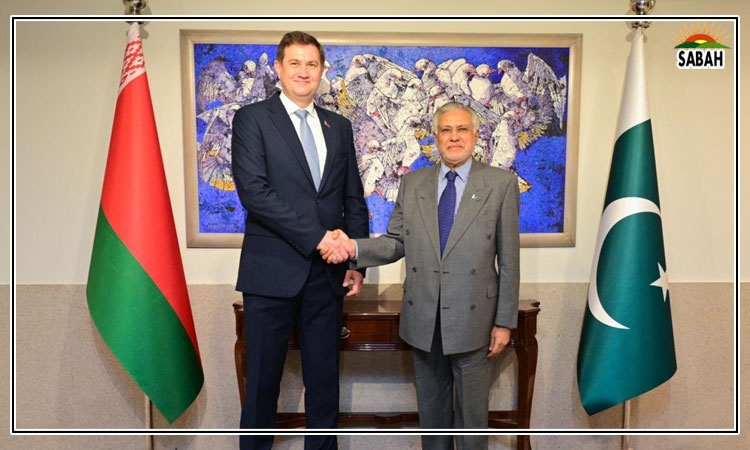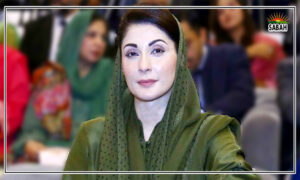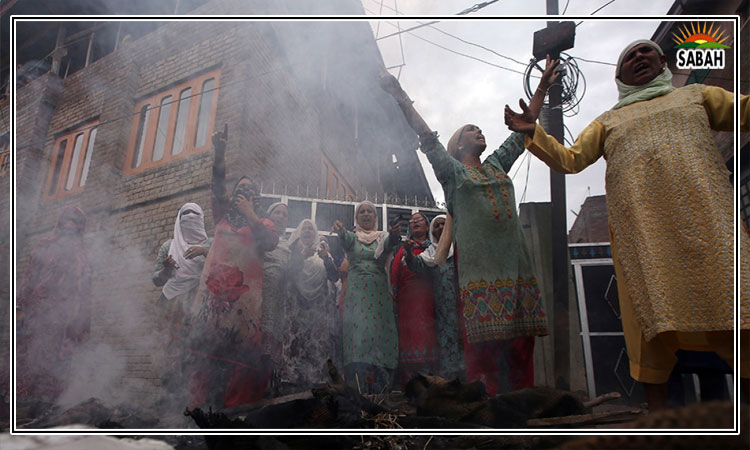Nuclear deterrence in South Asia….By Syed Muhammad Ali
Leaving Russias current posturing aside, the nuclear standoff in South Asia has widely been considered the most dangerous flashpoint for the past two decades. The dynamics of the nuclear arms race, as well as nuclear deterrence, within South Asia are unique and bear little semblance to the Cold War or even current nuclear posturing between the West and its evident adversaries including Russia and China.
Pakistans former National Security Advisor Moeed Yusuf has written about how the nuclear standoff in South Asia could be best understood by keeping in view the role of major powers, especially America and China, to de-escalate tensions. However, in recent years, the growing acrimony between China and the US has made this informal mediation role less reliable.
More recently, the nuclear dynamics within South Asia have been said to be influenced by the unfolding Sino-American power competition. Scholars at the Brookings Institute warned of a strategic chain reaction which is triggering an arms race in South Asia. This strategic chain has been described as Chinas need to contend with the American nuclear arsenal triggering Indias need to keep up with China, and Pakistan in turn feeling compelled to increase its own nuclear capabilities in response to India.
New research on this topic by Ashley Tellis, who holds a Tata-funded chair at the prominent DC-based Carnegie Endowment for Peace, makes a somewhat different claim. Tellis argues that China is engaged in a dramatic nuclear expansion, Pakistan is also pushing ahead with nuclear diversification, whereas Indias nuclear ambitions remain comparatively modest.
Tellis pushes back against the idea of a strategic chain by claiming that India realises that its territorial disputes with China may be thorny, but they pose no real existential threat. He claims that India is also confident in its conventional superiority over Pakistan, with which it also maintains a credible nuclear deterrent. Other reasons cited for Indias nuclear restraint point to the countrys capability to easily build more weapons due to its large civilian nuclear programme, which has also been endorsed by the US. Moreover, Indias political leadership is said to consider the acquisition of more nuclear weapons to have limited value. On the other hand, Pakistans military is considered to have full control of the countrys nuclear weapons which, in turn, is said to imbibe more purposefulness to the countrys resolve to enhance its nuclear programme to not only protect the homeland, but also as the means to engage in more creative forms of competition with India.
Tellis categorises Pakistans nuclear ambitions as a licence to challenge India on Kashmir, as the nuclear threat has made conventional war unsafe, while sub-conventional war is now a safer bet for the country. Such an assessment undermines Pakistans claims of nuclear safety and being a responsible nuclear state. Such suspicions may explain the otherwise seemingly random remark by President Joe Biden that Pakistan is the most dangerous country in the world because it has nuclear weapons without any cohesion.
Tellis even goes to the extent of asserting that Pakistani nuclear threat perception has shifted from primarily being focused on India to the possibility of western countries, especially the US, trying to denuclearise Pakistan. This assertion resonates with suspicions of China helping Pakistan build an intercontinental ballistic missile capability that could reach the US, as has been stated by US Congressman Ted Poe.
Tellis, like other US experts, thinks that Chinas existing nuclear stockpile may double, triple, or even quadruple over the next decade. Tellis also points to the growing accuracy of Chinas sub-strategic systems which is causing anxiety in India and create future instabilities in South Asia. Tellis ultimately advocates for increased US support to India to counterbalance China. Ironically, it is precisely such policies which would fuel the strategic chain escalation that scholars at Brookings have warned about.
Courtsey The Express Tribune












